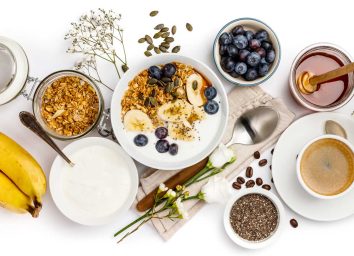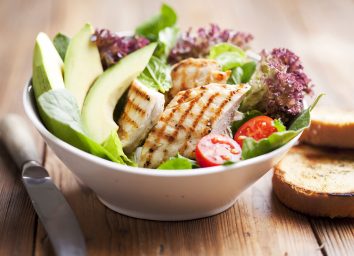6 Underrated Healthy Eating Tips That Actually Work
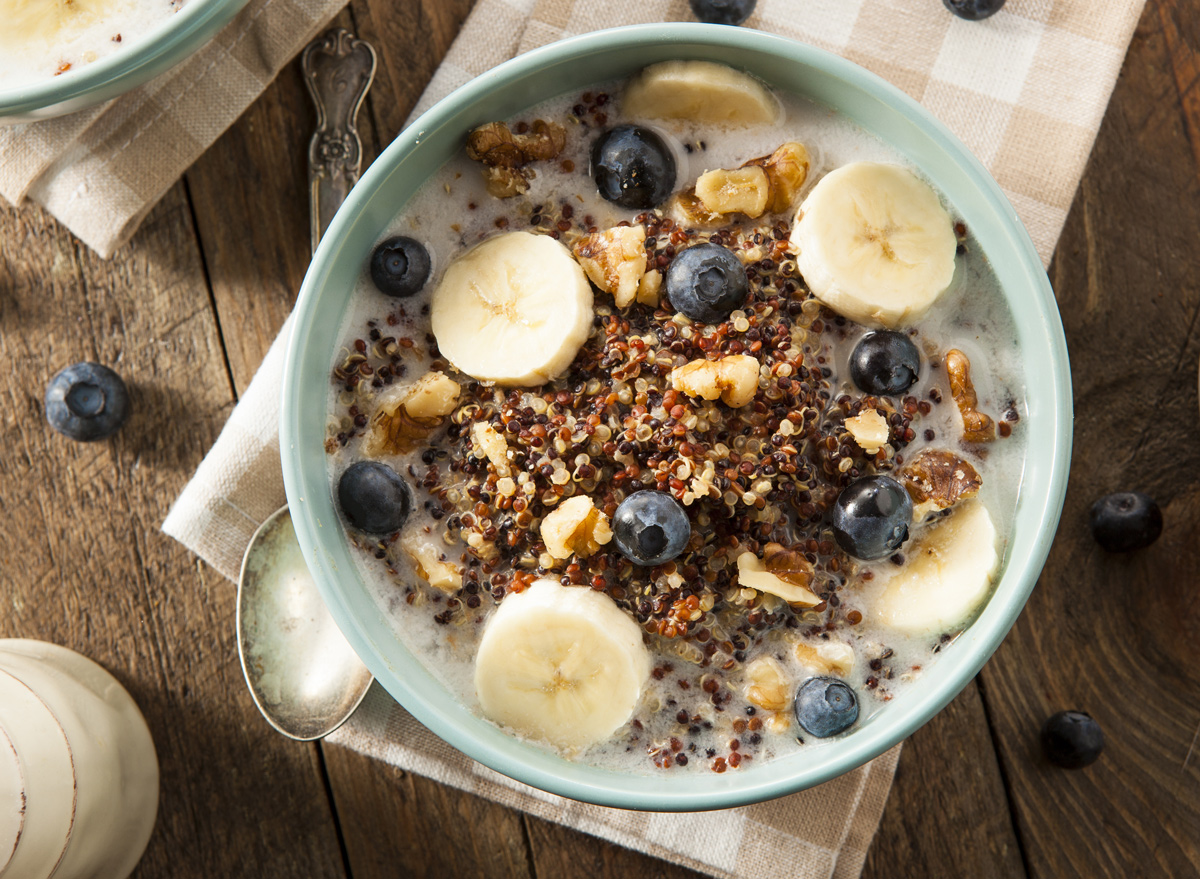
We’re just going to say it: Trying to eat healthy foods in every meal is already difficult enough. But when you begin talking with people or searching the internet for tips and tricks, it can begin to feel like you’re drowning in a sea of information. Which foods really are the best? And is there a right and wrong way to eat them? What about the time of day you decide to consume these foods?
It can be overwhelming!
So, we did some research to help you out. We found the truth behind some common, yet underrated, healthy eating tips that can help you stay afloat on your health journey. Try these tips and soon enough, you will start to see the changes you desire. And while you’re at it, try out these 15 Underrated Weight Loss Tips That Actually Work, too.
Eating on smaller plates really does work.
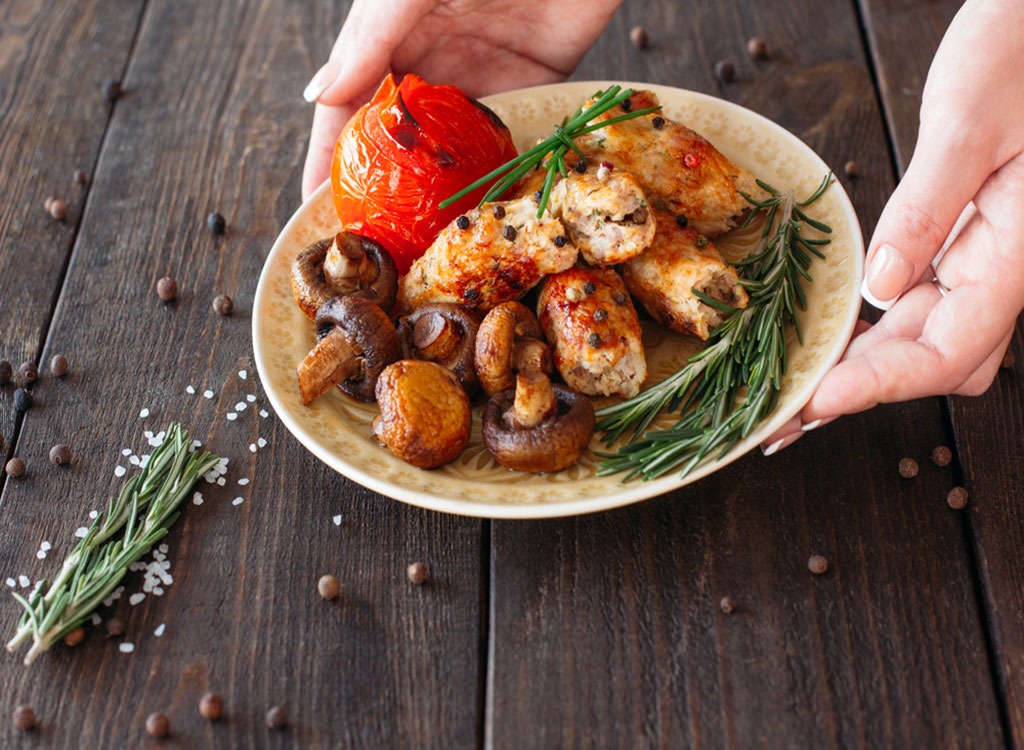
My mom used to tell me to grab a small plate when loading up on dinner so I could avoid overeating but still feel like I’m filling up my plate. And chances are, most of us have heard a version of this advice thrown around at least once in our life. But is it true? Can this really help us consume healthier amounts of food?
The short answer: yes, absolutely! What we found is that when it comes to food consumption, humans are extremely visual. The saying, “your eyes are bigger than your stomach” is popular for a reason.
In one study, it was found that people are less likely to self-monitor when they have larger portions of food in front of them. In other words, when we have larger servings in front of us, we are more likely to judge how full we are based on our eyes rather than our stomachs.
So instead of starting off with an extra-large plate full of food, we can control our variable a bit more by helping ourselves to a smaller plate. This way we may be more likely to check in with our hunger levels before going back for seconds.
Ordering that side salad or cup of fruit can actually help fill you up.
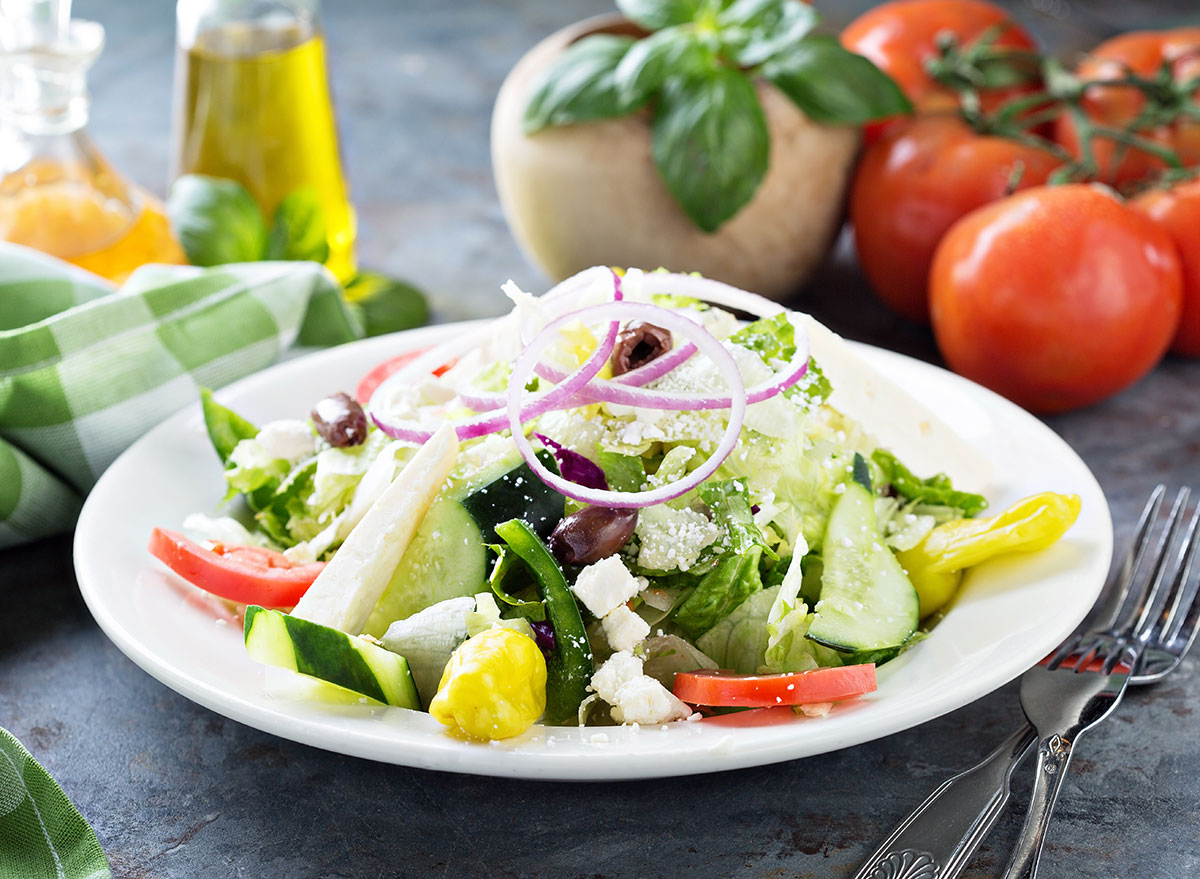
It may be obvious that you’ll be saving some calories when you choose a salad or cup of fruit instead of fries as your side dish. But what people may not realize is that consuming fruit and vegetables before a meal can help satiate hunger levels.
In a study from the Journal of the Academy of Nutrition and Dietetics, it was found that consuming something like a nutrient-dense salad before a main course can help regulate hunger and aid in weight loss or management.
In a similar study from the Journal of Environmental Research and Public Health, it was concluded that consuming fruit before a meal can absolutely help in weight loss and suppression of appetite.
Drinking water before a meal really can help in weight loss.

It’s been proven that drinking enough water throughout the day can help with weight loss and management by reducing body fat and suppressing appetite. But an underrated tip for healthy eating is to try drinking a cup of water 30 minutes before a main course. Many studies have proven this to be true, including a study from the University of Birmingham that found drinking at least 500 ml of water before a meal helped overweight and obese adults lose weight.
More data from the European Journal of Nutrition confirmed these findings in a study group of young men. When the group drank about 500ml of water before a main meal, they recorded feeling decreased hunger and more satisfaction.
It’s clear that no matter what, it’s always beneficial to drink water and stay hydrated. If you find yourself overeating during meals, it could be a good idea to check in with your water consumption and consider sipping on a glass of water before chowing down. Another drink that’s great to sip on is tea! Learn how to harness the power of tea to lose weight.
Eating slower can help you avoid overeating.

Again, similar to the smaller plate size, this is an argument my mom always won in our household. As I was scarfing down dinner in one bite, my mom would always remind me to slow down. It wasn’t until years later that I realized why this is so important.
One study concluded that eating meals at a slower pace can help in avoiding overeating. Because of this, slower eating can help prevent obesity and help those currently trying to lose weight.
Another study from the International Journal of Behavioral Nutrition and Physical Activity found similar results with their research. Their group also reported having less of an appetite and feeling more satiated after eating slowly. (It is important to note though that this particular study did not control water intake, so water could also have played a factor here.)
It seems that with this tip, my mother was right all along. When we slow down our eating, we can truly enjoy our food, feel more satiated, and be able to notice when our stomach says we are full.
Don’t skip breakfast, and make it the biggest meal.
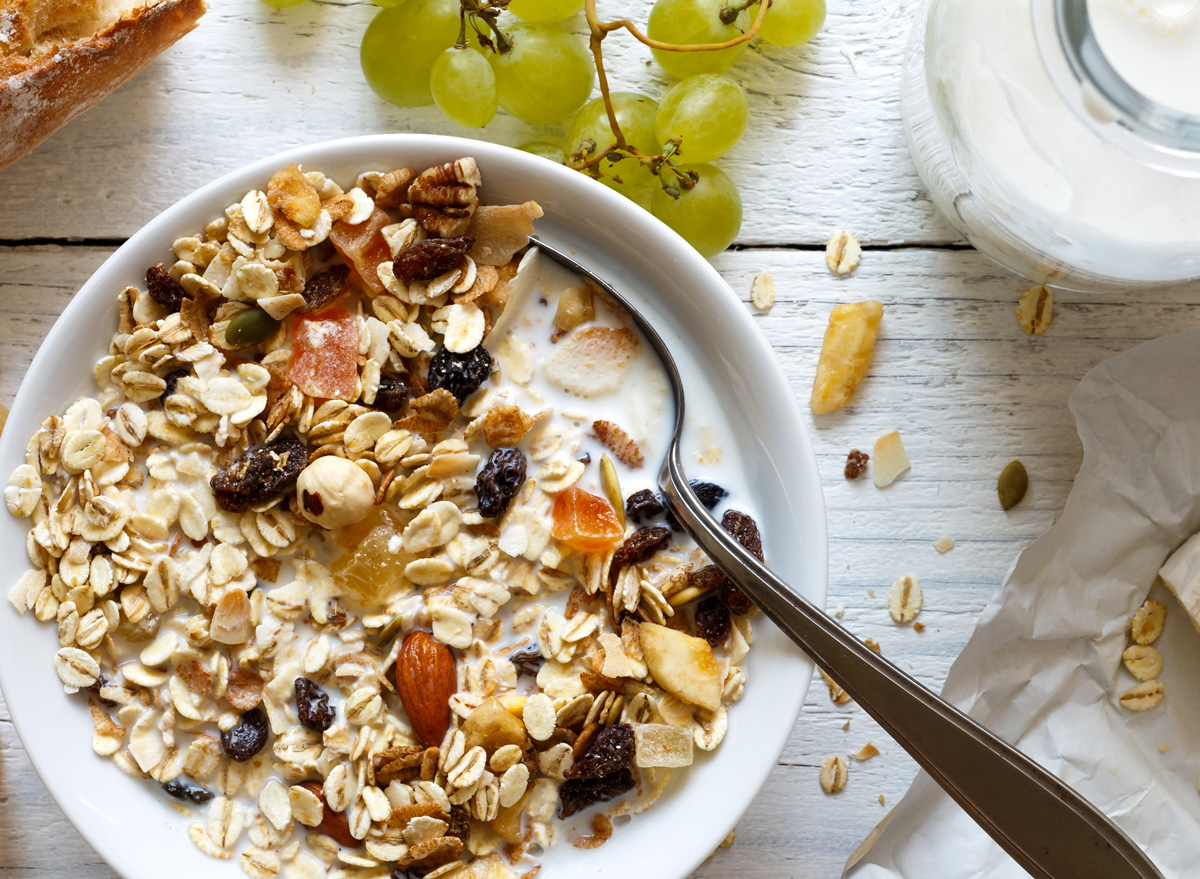
It’s true: Eating your largest meal in the morning could be the key to your weight loss or weight management.
In a study from the Journal of Nutrition, it was discovered that people who eat breakfast experienced a large decrease in BMI compared to the “breakfast skippers.” It was also concluded that people who ate their largest meal at breakfast, as opposed to lunch or dinner, experienced a larger decrease in BMI.
However, it’s important to pay attention to the quality of breakfast. It’s crucial that you pack these breakfasts with nutrient-dense foods, as this will avoid feelings of hunger throughout the day. So you may want to reconsider sprinting to the kitchen for donuts every morning…
Meal planning works, and isn’t just a trend.
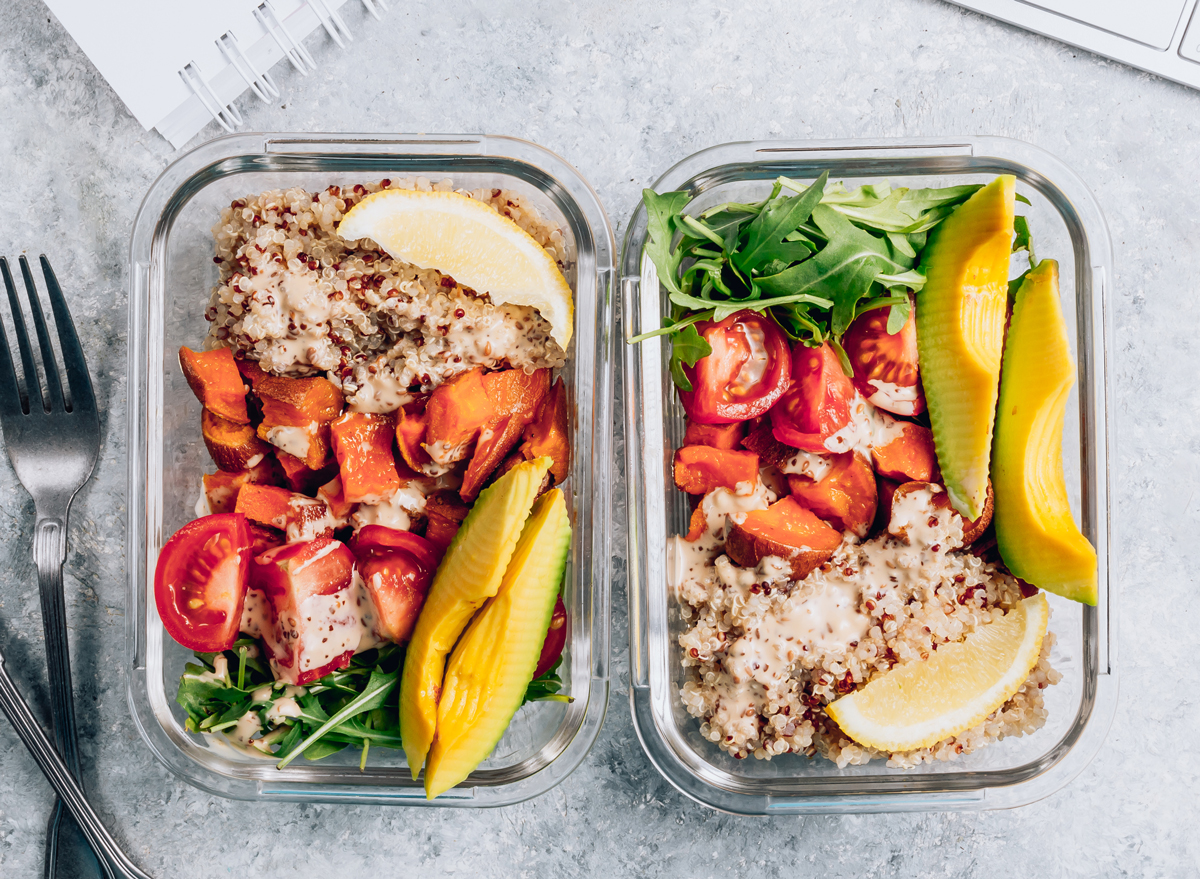
You can find every meal planning tip you’ve ever wanted online. Prepping your food has become a hot-button healthy eating tip over the last few years, but there’s a lot of validity in this trend.
According to a study found in the International Journal of Behavioral Nutrition and Physical Activity, people who prepared their food ahead of time and planned out their meals were more likely to maintain a healthy weight and avoid obesity.
When you prepare your food and contemplate your meals before making them, you can avoid overeating and consuming junk food that may be more easily accessible. That way when you come home exhausted from work or need to pack a quick lunch, you’ll already have something healthy on hand. Simple as that!
